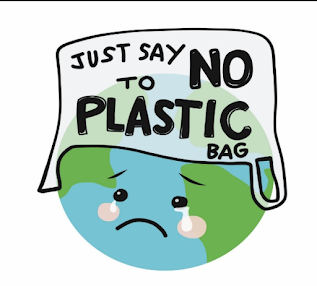Social action is about people coming together to help improve their lives and solve the problems that are important in their communities. It can include volunteering, giving money, community action or simple neighbourly acts. A social action project prepares students to identify, plan and carry out solutions to problems within their school, community and beyond. Social projects engage students in acting on their beliefs. In social action projects, students typically work cooperatively with other
Sunday, June 18, 2023
Exploring the Potential of Organic Food in Pakistan
Monday, June 5, 2023
NUML SDGs Scouts 2023
WHAT IS SUSTAINABLE LIVING? And "WHAT DOES SUSTAINABLE LIVING LOOK LIKE"?
 |
https://www.google.com/url?sa=i&url=http |
As is shown in the diagram, three of the components are interconnected, and each of the three plays a considerable role to achieve accurate sustainability,
Sustainable living doesn't mean a perfect lifestyle but it can be defined in 3 terms which are Reduce, Reuse and Recycle,
As Bea Johnson wrote, “refuse what you do not need; reduce what you do need; reuse what you consume; recycle what you cannot refuse, reduce, or reuse; and rot (compost) the rest.”
Now! Let's come toward what does Sustainable Living Look like?
Sustainable living is not something that cannot be achieved it depends on our daily actions and many people are living their lives sustainably all around the world, here are some ways which can be followed to make your life and environment sustainable
According to David Suzuki~
In a world of more than seven billion people, each of us is a drop in the bucket. But with enough drops, we can fill any bucket.
There are 1000s of ways in which we can live a sustainable life, some of them are listed below
Reduce, Reuse And Recycle:
 |
https://www.google.com/url?sa=i&url=http
The first and most famous phenomenon of sustainable living is reducing, reusing, and recycling, when we reduce, reuse, and recycle our daily life gadgets and goods which are made in the industries producing CO2 emissions and burning fossil fuels, it can help to protect the environment and health of the earth, for instance, we can use the wasted plastic bottles in seeding new plants.
https://www.google.com/url?sa=i&url=http
As everyone knows how dangerous is the exhaust smoke that comes out of vehicle’s engines and motors, be attentive to your daily actions like using motor/engine vehicles, which are impacting the environment and your health also start living your life without cars motorbikes, or any such vehicle that is hazardous to you and people around you, start doing your tasks by walking and use bicycles for your errands it will help to keep the environment clean and your health stable.
https://www.google.com/url?sa=i&url=http
https://www.google.com/url?sa=i&url=http
Avoid purchasing ready-made vegetables and fruits try to grow your food by yourself, you can build a little garden or sow some herbs on your balcony, it will give you the satisfaction you can never get by purchasing your food from supermarkets, it will not just cost you less money but also make your home greener, enhance your gardening skills and will increases biodiversity.
Cut down plastic use:
 |
https://www.google.com/url?sa=i&url=http
According to UNEP
“Around the world, one million plastic bottles are purchased every minute, while up to five trillion plastic bags are used worldwide every year, in total, half of all plastic produced is designed for single-use purposes-used just once and then thrown away.”
Last but not least
( Raise Your Voice )
If you are aware of the right thing like how to live a sustainable life and you feel like people around you don’t know about it, do teach them and provide them the accurate information so they can also start living a sustainable life.
NUML Social Action Projects; Building Leadership skills in students
SDG scouts for Water, Energy, and Food Security at Govt M.C Boys Model high school NUML social action projects (SAP) is a platform initiated...

Popular Posts
-
SDG scouts for Water, Energy, and Food Security at Govt M.C Boys Model high school NUML social action projects (SAP) is a platform initiated...
-
The Sustainable Development Goals, adopted by all United Nations Member States in 2015, provide a common blueprint for peace and prosperity ...
-
NUML SDGs scout s for Water, Energy and Food security learned a lot as interns at PCRWR and developed new skills that will be very useful ...

.jpeg)





